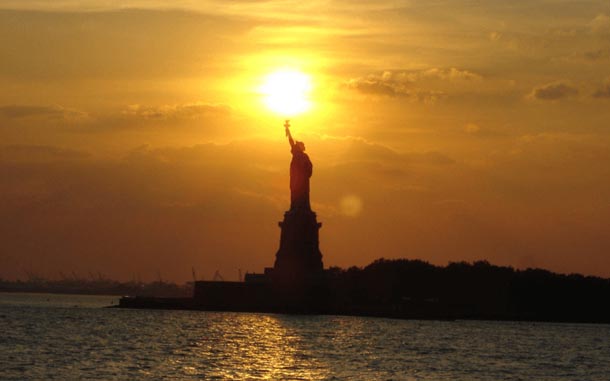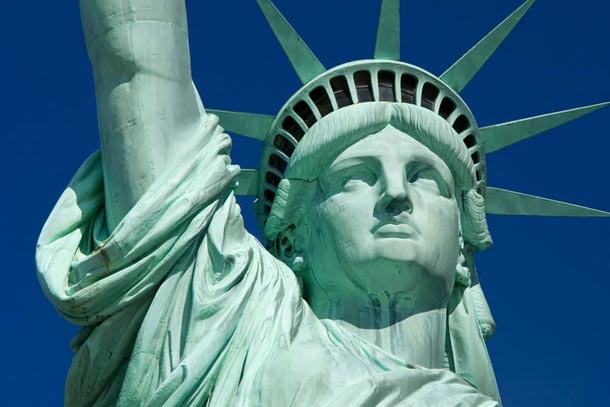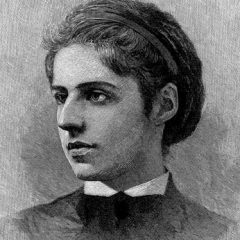
The Statue of Liberty is said to commemorate the exiles who founded the United States, welcome refugees hoping to make America their new home, and symbolize a commitment to dignity and opportunity.
The poem’s most famous lines, “Give me your tired, your poor, your huddled masses yearning to breathe free,” are spoken by the statue, inviting the world to send her the tired, the poor, and the wretched, and promising to welcome them with her lamp.

The New Colossus
Not like the brazen giant of Greek fame,
with conquering limbs astride from land to land;
Here at our sea-washed, sunset gates shall stand
a mighty woman with a torch, whose flame
is the imprisoned lightning, and her name
Mother of Exiles. From her beacon-hand
glows world-wide welcome; her mild eyes command
the air-bridged harbor that twin cities frame.
“Keep, ancient lands, your storied pomp!” cries she
with silent lips. “Give me your tired, your poor,
your huddled masses yearning to breathe free,
the wretched refuse of your teeming shore.
Send these, the homeless, tempest-tost to me,
I lift my lamp beside the golden door!
Emma Lazarus, a Jewish American poet, wrote the poem “The New Colossus” in 1883 to raise money for the construction of a pedestal for the Statue of Liberty.

Lazarus was an activist and advocate for Jewish refugees fleeing persecution in Imperial Russia. She envisioned America as a country where the oppressed could come to live in liberty. For those fleeing Europe, the Statue of Liberty seemed to be holding a torch of welcome.
The statue, combined with the poem’s hopeful tone, offers an idealistic vision of America’s role as a protector of immigrants. The implication is that, on American land, human rights are respected, and all are given the resources necessary to flourish.
Today, the statue’s promise of freedom remains unmet. “The New Colossus” thus presents freedom as a worthy ideal that has yet to be achieved in the world outside the poem.